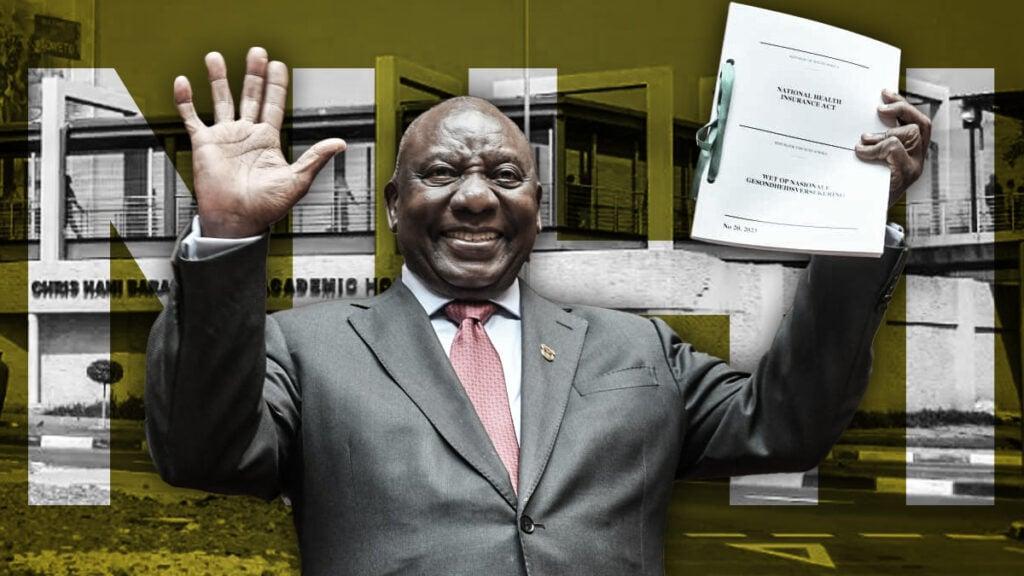Africa-Press – South-Africa. South Africa’s poor economic growth, rising unemployment, and declining quality of life are largely due to the government doubling down on losing policy positions that negatively impact the country.
These policy positions have resulted in the country’s economic performance declining sharply since the mid-2000s, when it had an average annual growth of over 4%.
Over the past decade, the country has experienced an average annual growth rate of just 0.8%, which is half its population growth rate of 1.6%.
As a result, South Africans have steadily become poorer, and the country’s social outcomes have deteriorated, while their peers in other emerging markets have enjoyed a rapid rise in their quality of life.
This is feedback from Bheki Mahlobo, an economist and partner at Frans Cronje Private Clients, who outlined some of South Africa’s repeated own goals.
Mahlobo told Biznews that South Africa has failed to keep pace with other emerging markets because of its own destructive policy choices, calling the country an “own goal specialist”.
South Africa has the highest youth unemployment rate in the world at 62.4%, with Mahlobo saying that it is surprising there have been relatively few incidents of violent protest regarding this.
These poor economic outcomes are a direct result of the government doubling down on policies that have not worked over the past decade.
“Employment signs are not seen in South Africa, and that is largely due to the doubling down of the losing positions that our government continues to choose, such as its empowerment policy and expropriation,” Mahlobo said.
“It is like watching a soccer team and instead of going to the other end of the field to score a goal, they simply prefer to move towards their own goal posts and try to score against their own keeper.”
“Their normal keeper, in this case, is made up of normal South Africans, normal businesses that actually want a better life and are sensible in how they approach key issues. This is now what we are seeing with the South African government.”
Mahlobo explained that the government’s current policies are failing to attract investment to South Africa to boost economic growth and create job opportunities.
Rather, they chase capital out of the country or prevent it from coming in by placing unnecessary burdens on businesses to set up shop and grow.
What is being done to fix it
The good news is that things are beginning to change in two vital ways – the players on the field are changing, and the private sector is working around the barriers to investment.
Mahlobo explained that the complexion of South Africa’s government is changing rapidly, with the ANC no longer dominating the executive branch of the Cabinet and Presidency.
The party has seen its electoral support decline from 70% in the late 2000s to under 40% according to the latest Social Research Foundation poll.
Following the national election in 2024, a 10-party Government of National Unity (GNU) was formed. This means that for the first time, South Africa’s fortunes are not reliant on a single political party.
This bodes well for South Africa as the country’s political leadership is changing towards a more business-friendly composition that will encourage investment.
The second encouraging factor is that the country’s private sector appears to have found a way to navigate the harsh environment in South Africa.
It has heavily invested in alternative sources of energy to shield itself from load-shedding and is playing a larger role in the local economy than it has for decades.
Mahlobo said this is even more encouraging than the first point, as it is more sustainable and would be very difficult to reverse or undo.
“The resilience of the private sector has resulted in an uptick in the private provision of electricity and increased participation in the logistics sector.”
This has been forced reform due to the crises experienced over the past five years from the collapse of state-owned enterprises, but these reforms now have a momentum of their own.
The increased involvement of the private sector in the economy is also evident in other areas, such as education and security.
Private education groups are increasingly filling the gap left by the government, and private security has grown to such a point that there are more private security guards than policy officers in South Africa.
However, Mahlobo said this is not enough, as some South Africans cannot afford to opt out of this environment economically.
A large part of the country cannot afford to abandon public services and continues to be at the mercy of an inefficient government that struggles to deliver basic services.
For this to change, the players on the field need to change, and while this will take time, it is currently happening in South Africa.
For More News And Analysis About South-Africa Follow Africa-Press






